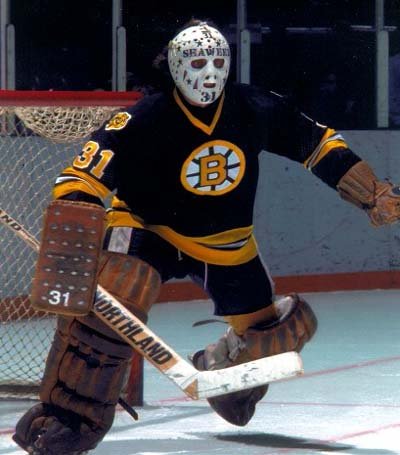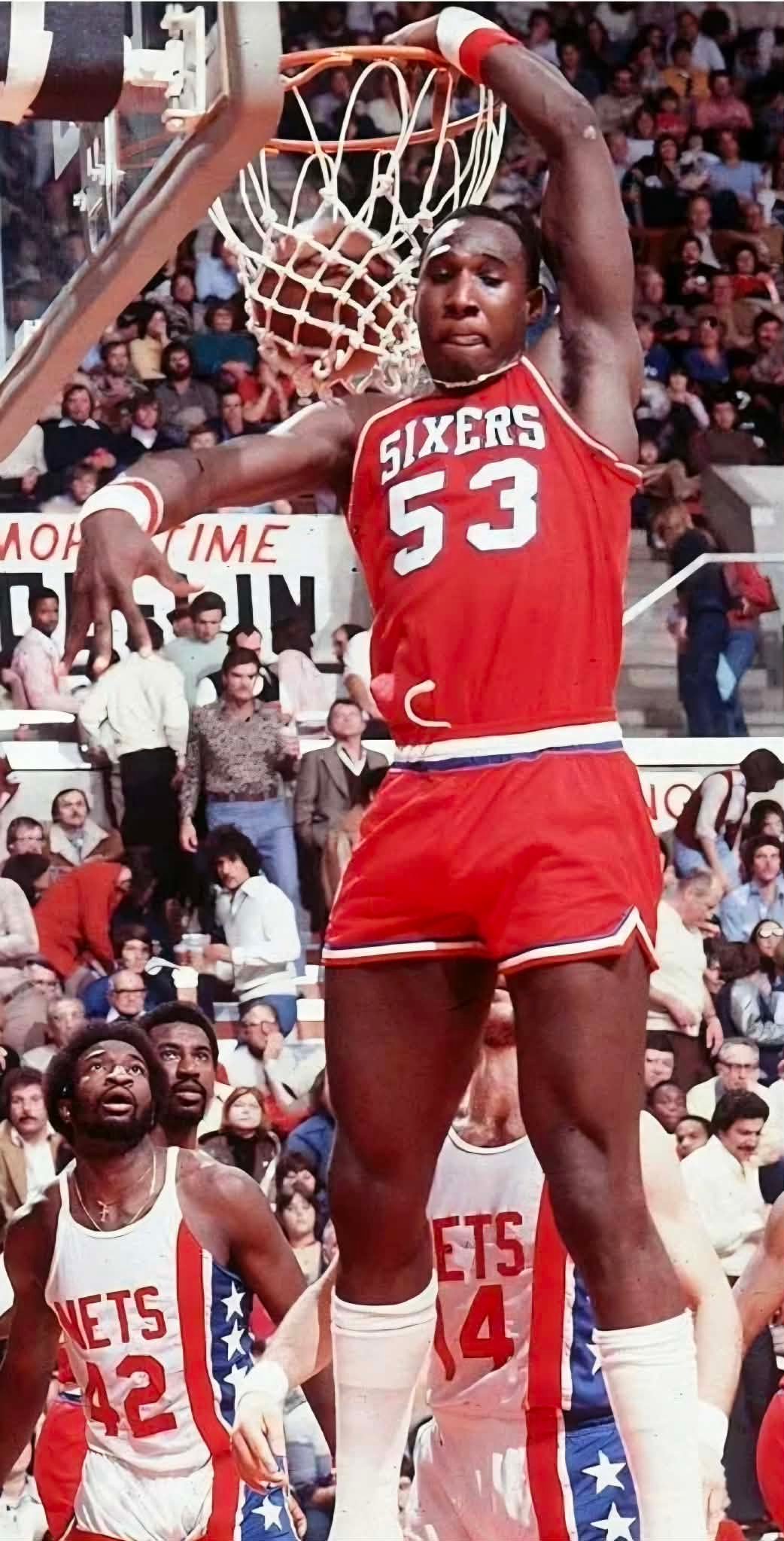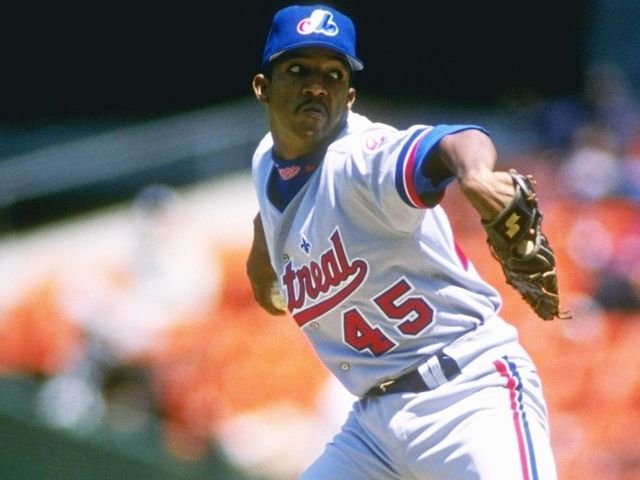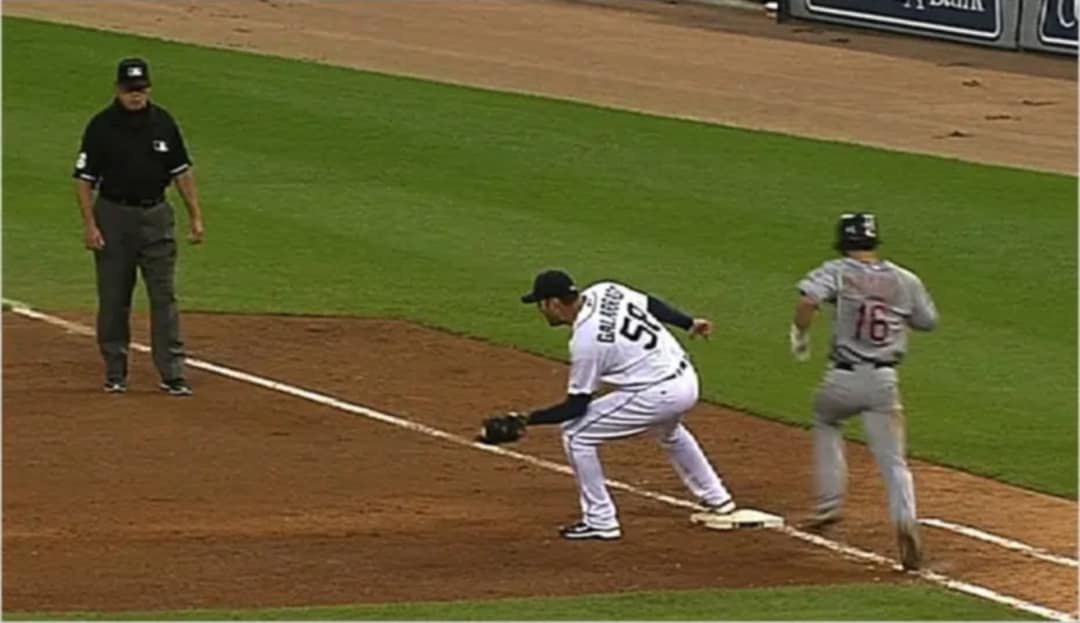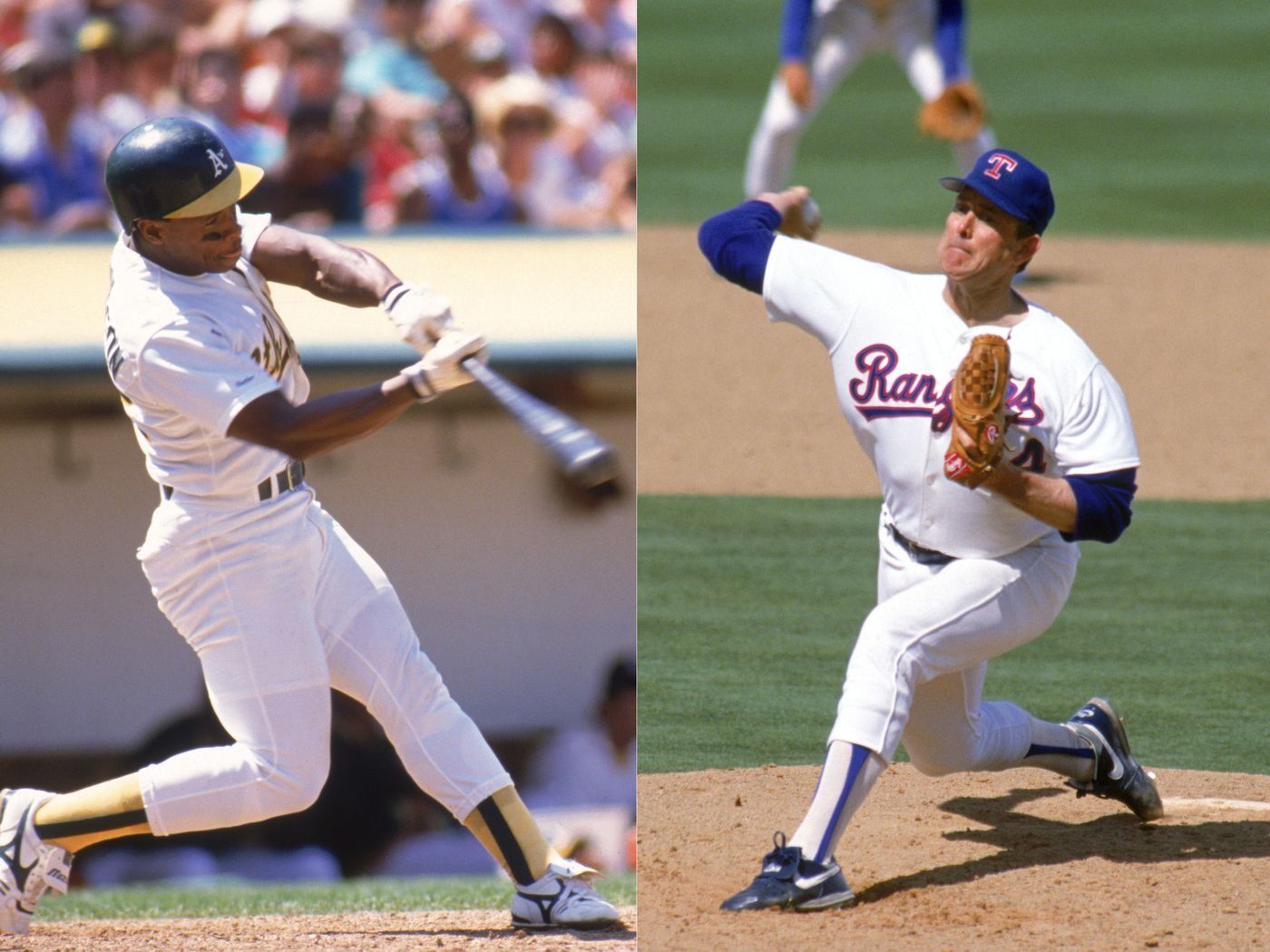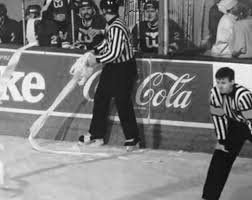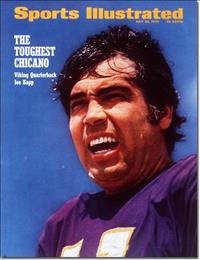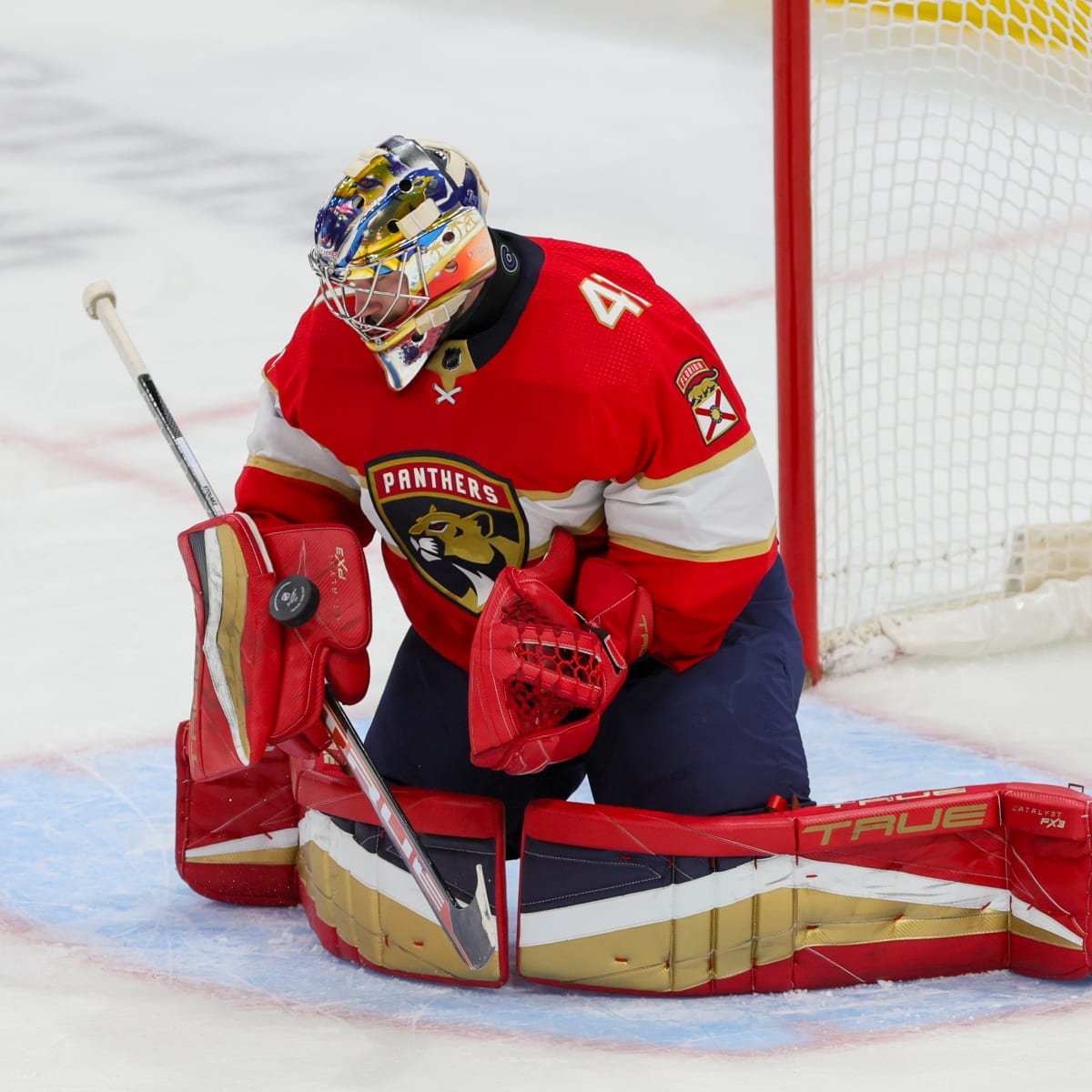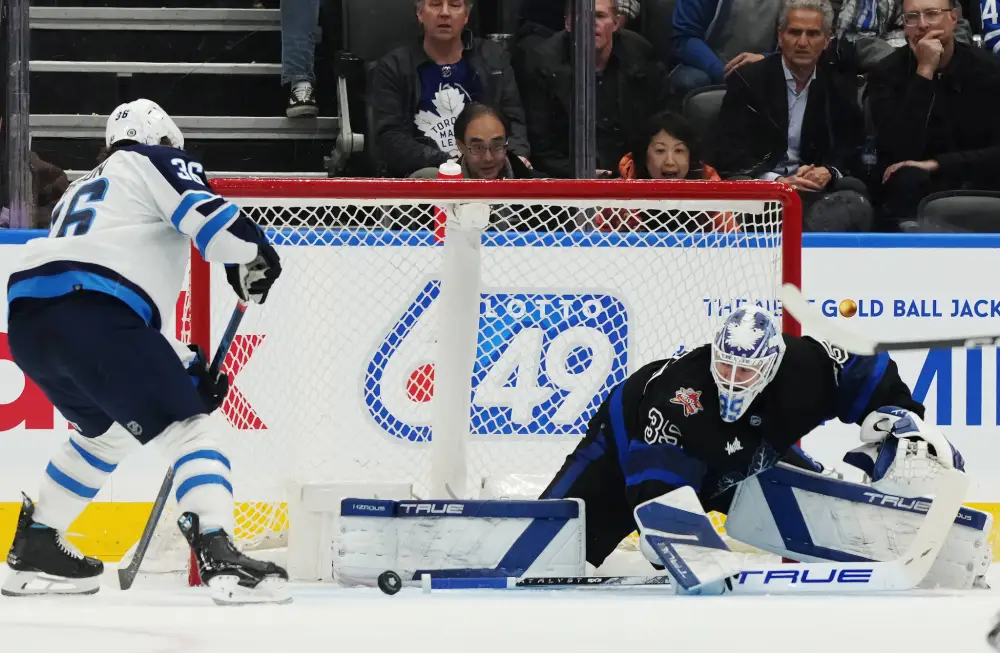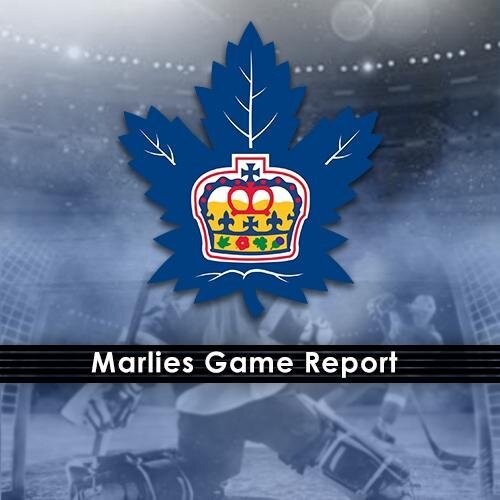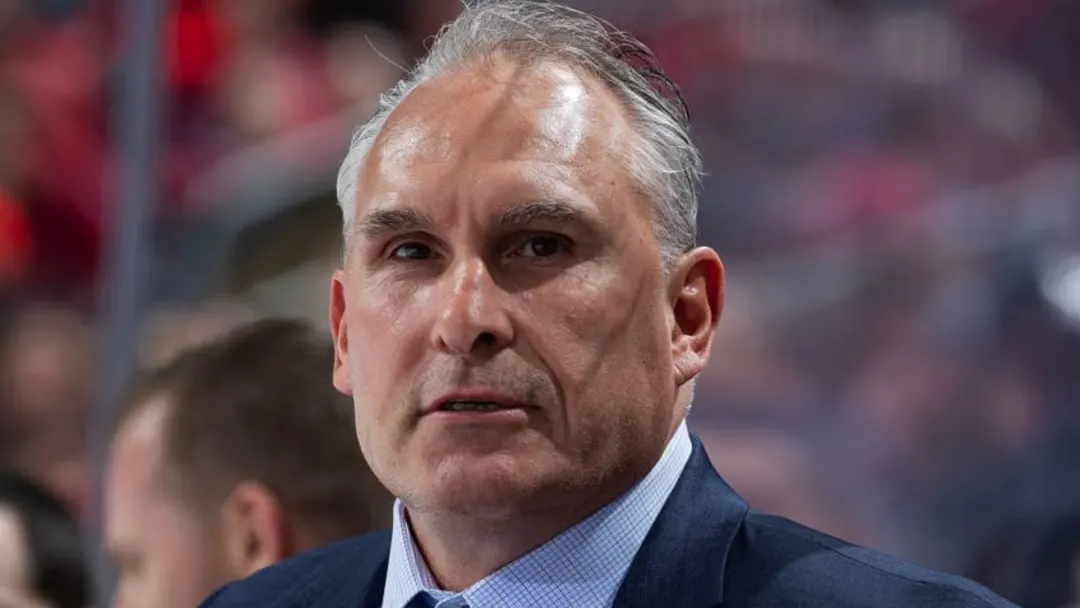For most hockey players, their dream is to play in the National Hockey League. Also, for most of them, it is one of the most elusive dreams in any sport. For each of the men who excel at that highest of levels, there are tens of thousands who toil in anonymity. For many of the very best players of the game, their fate can be to play in the minor leagues of professional hockey – the American League or maybe what used to be called the East Coast Hockey League.
It can be even harder for goaltenders. Every time a goalie moves up a level, he must compete with more adept competitors for a spot. And on most hockey teams, there are seven or eight defensemen, twelve to fourteen forwards, but only a couple of goalies. The degree of difficulty gets greater and greater with every level a player moves up. And that intensifies for the men and women who wear the big padding.
There are a lot of players who get just a taste of life in the NHL only to have to return to the minors. Often that return is permanent. Sometimes, it’s not. Of course, the wish would always be to stay in the big league for as long as is possible. But for a lot of players, it’s only a taste and the majority of the back of their hockey card might show places that casual hockey fans might not know.
Very often, we’ll hear that a player got a chance because of somebody else’s injury, or some other reason and they must make the most of that opportunity in order to get noticed and be able to stay up at the higher level. Some players do. Some others don’t. Some will bounce back and forth for a while before finding their eventual level.
For a case in point, we look today at a goaltender who was born in Weston, which is part of Toronto today, and spent a number of years playing in places like Dayton, Ohio and Rochester, New York before getting his chance in the NHL. He had some amazing moments both on and off the ice. And ultimately, he got to play at the highest level of the game, and, best of all, he had a lot of people who remembered him fondly.
Chances are you’ve never heard of Jim Pettie. That’s okay. He didn’t have great statistics as a kid, and he made it to the Ontario Hockey Association’s St. Catharines Black Hawks just before his 19th birthday. In 31 games there, he posted a goals against average of 5.04. Not great. But that was decent enough to get him selected in the ninth round by the Boston Bruins in the 1973 NHL Draft.
Ninth round picks are unlikely to ever make it up to the big club, but Jim, or ‘Seaweed’ as he was known to his teammates (when he was sweaty, his long hair clung to his scalp and head like seaweed in a lake), did everything he could to enjoy his time playing hockey. That was both on and off the ice, by the way.
He started off his pro career playing in Dayton with the Gems of the International League. His numbers were very good in the “I”. In 1973-74, he played in 40 games and put up an average of 2.75 goals against per game. The following year, he got into 27 games with 73 goals against for an average of 3.34. And in 1975-76, again in Dayton, in 51 appearances, his average came in at 2.86. He had a rambunctious side as well, accumulating 145 penalty minutes that year with the Gems.
In his first month with the Gems, he had picked up three victories in three straight games and in the second game of a back-to-back with the Fort Wayne Komets, a bench clearing brawl occurred at the end of the first period. It was a Sunday night game at the beginning of November, and it started when the Komets’ Gord Lane went after Dayton’s Les Jackson. They sat out their penalty times, but they went at it again near the end of the first period. That was when everyone on both teams joined in.
Before you knew it, Pettie and the Fort Wayne goalie, Don Atchison were exchanging punches. Everyone else had a partner and were squared off as well. The benches emptied and soon you had all four goalies grabbing at each other. Pettie’s teammate, Danny Sullivan, had come off the bench to get Atchison off Pettie. When he saw that, the Komets’ backup, Robbie Irons, was in there too. It ended up with Sullivan and Atchison paired up and Pettie and Irons together.
Ultimately, Jackson, Lane, Irons and Sullivan were all ejected from the game. Sullivan apparently came out of the melee with a broken hand. At the end of the game, he was seen to have had a heavy bandage on that hand. The rough stuff must have agreed with Pettie. He didn’t give up another goal until there were just four seconds left in the final period. The Gems came away with a 6-3 win.
According to former NHL referee Kerry Fraser, his first ever professional hockey game was an International League game with Jim Pettie playing goal for the Dayton Gems. And also, according to Fraser, Pettie started a massive brawl in the game.
One thing about Pettie…he said whatever was on his mind. Many players, if they are doing an interview with any media member, would be loath to mention opponents by name or say disparaging things about them. But the then-21-year-old ‘Seaweed’ Pettie didn’t hold back. When Marc Katz of the Dayton Daily News asked him about a game against Toledo earlier that week, Pettie was honest.
In the December 4, 1974 game, four Dayton Gems and three Toledo Goaldiggers’ players were ejected from their meeting. There were fights on the ice, in the penalty box, in the stands…. “That (Paul) Tantardini is a backstabber. He goes at everyone from behind,” Pettie responded. Pettie was one of the players who was given a game misconduct.
It all started at 4:02 of the first period. This could be considered the first round of the action on the night. That was when Dayton’s Bill Best and Toledo’s Ian MacPhee engaged in fisticuffs. According to the Dayton Daily News, Best won that bout handily. He was also penalized accordingly. He received seven minutes in the box while MacPhee only got four. But MacPhee was also cut badly and couldn’t be treated in the arena, so he had to leave and go to hospital for repairs.
The next fight occurred with twelve seconds left in the opening period. That was when Toledo’s Tantardini got into it with the Gems’ Billy Riley. Riley got a fighting major while Tantardini got an extra penalty for roughing. That fact left the Goaldiggers’ coach, Ted Garvin, in a froth. “Riley ran Tantardini from behind. I’m not saying Tantardini is an angel, but Riley should have had the minor too, not my guy.”
Just a side note – after this game, Tantardini had appeared in 23 games to this point in the season. After this game, he had amassed 225 penalty minutes. That takes an effort!
As the second period was nearing a close, the fireworks really began to blast. Things seemed to start with Jim Pettie crosschecking Toledo’s Darwin Mott. As difficult as it is for a goalie to crosscheck anyone, given their gloves, that is what is written on the game summary. Over in the corner, just skate strides away from Pettie, his now-teammate Gord Lane was fighting Tantardini.
The officials managed to corral the two combatants and get them to the penalty box. But just because the two boxes were separated by several feet and a couple of people, that didn’t stop the players from trying to continue the battle in their confined space. Lane was the one who climbed over to the visitors’ box to get at Tantardini. Given the fact that there’s just an hour and a half between Toledo and Dayton, there were a healthy number of Toledo fans in Dayton’s Hara Arena. When the Goaldiggers’ fans saw Lane trying to get at Tantardini, they imposed themselves on the fight as well.
Lane’s teammate, Brian Kinsella, was already in the box. When the fight between Lane and Tantardini advanced into the stands, he followed to try to protect his teammate. Toledo’s Dave Bates was on his bench, and he jumped on to the ice. He followed the players into the stands as well. Of course, the sight of this was too much for Pettie to bear. He left the ice and climbed up into the fracas too. His teammate Steve Self did the same. Self was given a ten-minute misconduct. Pettie was assessed a two-minute penalty for leaving his crease and the game misconduct.
Ron Fournier was a referee who worked for four years in the World Hockey Association and the National Hockey League. He retired from working NHL games in 1987. Before he worked in either of those leagues, he was working in the International League. He was doing this game that night in Dayton. In that melee alone, Fournier assessed 84 minutes in penalties to all the guilty parties. Oh, and Gord Lane broke his left hand too.
At that point in the game, the Gems were leading the Goaldiggers by a score of 2-1. Dayton stretched their lead in the third period to 5-1 before giving up a couple of Toledo goals. The final score in this one was 6-3 for the Gems. It was their seventh straight victory. If you’re saying to yourself, this sounds eerily like SlapShot, the movie, you’re right. But that’s how hockey was in the 1970s. Not every second of it was like that, mind you. But outbursts like that were perhaps more common than you might think.
This was Pettie’s second year with the Gems in Dayton. He would spend another season in Ohio before moving up to Rochester in the American Hockey League. He would play there for three seasons. It was just less than two years after the brawl at the Hara Arena though that he got the call that would give him his opportunity to show some of the big people what he could do.
Gerry Cheevers had returned to the Boston Bruins during the 1975-76 season following a financial disagreement with the World Hockey Association’s Cleveland Crusaders. He finished that season in Boston and continued to play with them in the 1976-77 campaign. But at the end of November in 1976, his father passed away and he had to leave the team. The Bruins needed a goalie. They called up the man from their AHL affiliate, the Rochester Americans. That was Jim Pettie.
Many may have figured that Pettie would sit on the bench for the Bruins while Gilles Gilbert played in Cheevers’ absence. Don Cherry had another idea. On December 1, the Bruins were in Chicago to play the Black Hawks. Going into this game, the Bruins had built a big lead at the top of the Adams Division, ten points ahead of the Buffalo Sabres. Chicago was two games below .500. Despite that, they were still firmly in second place in the woeful Smythe Division, just three points behind the leading St. Louis Blues.
Cherry decided to rest Gilbert and let the rookie Pettie play while he was up with the big team. Who knew how long Cheevers would be away, and how long this chance might last. Pettie had some trepidation before the game, but he went out and played as if he deserved this audition. He would prove himself to be right.
If anyone has been a goalie or the parent or the relative of a goalie, they are aware that there is little to no joy in the prospect. In the moments of success and victory, there can only be satisfaction and relief. Don Cherry acknowledged that after the kid came in and stopped 27 of 30 shots in a 5-3 Bruins’ win. This game in Chicago also happened to be the first game that former Bruins’ immortal, Bobby Orr, would perform against his old team.
Fans in Boston were still angry that Orr had been allowed to leave the Bruins and had been staying away from the Boston Garden in ways they hadn’t since before Orr’s arrival a decade before. ‘Grapes’ would start his remarks to reporters by mentioning that.
“It is remarkable the way the fans have supported us at home in spite of an organized boycott to stay away. The fans are all angry that Bobby Orr, the greatest player in the game, was traded away without getting anybody in return. But the decision was made higher up. I’m only a sweathog in the trenches. I didn’t realize the size of the New England TV audience to watch Bobby Orr’s first regular season game against us, so I’d guess we’d have been roasted if our kid goalie, Jim Pettie, hadn’t won it for us.”
Despite the fact that Pettie had built himself quite a history in Dayton and Rochester, he was still only 23 years old and so the characterization by Cherry as “our kid goalie” was not inaccurate. “I can’t say enough about Pettie, who turned in quite a performance. He didn’t have to take a back seat to anybody. You know he was nervous. This was his first NHL game, and he was sick all night, but you can bet he’ll get another start.”
Jean Ratelle had a couple of goals and an assist, and his line dominated the Hawks in their end. He was on a newly formed line with Bobby Schmautz and Johnny Bucyk and the trio clicked. Schmautz and Bucyk each had a goal in the win as well. “Our forechecking was decisive,” Cherry said. “Anybody would have looked bad against us and our Ratelle line.”
Ratelle liked playing with his new linemates. “It’s only the second game this year we’ve played with Schmautzie and The Chief. But we know each other’s moves and we got the job done,” he told the press after the win.
As much as Cherry said Pettie would get more games in the 1976-77 season, that would be his only appearance with the Bruins that year. He played in another game the following season, but he would eventually play 19 games in the 1978-79 year. That’s almost a quarter of the Bruins’ 80-game schedule that season.
There was one game in particular that year that stood out and really told the tale of Jim ‘Seaweed’ Pettie. It was a 4-4 tie against the up-and-coming New York Islanders. The game was played at the Garden in Boston and Pettie was his rambunctious self. Pettie was the guy who got the festivities started just a couple of minutes into the game.
Things got going when Pettie and Islanders’ tough guy Garry Howatt smacked each other with their sticks. A minute later, the puck was in the Boston zone and one of his defensemen behind his net had the puck and surveying the situation, Howatt skated toward the front of the net looking to defend. Pettie slashed at Howatt’s stick. Howatt slashed back at Pettie’s stick, and it was on!
The two men dropped their gloves and began to try to throw punches. Pettie still had his form-fitting fiberglass mask on so Howatt was kind of at a disadvantage, but Pettie threw hands with gusto, and it wasn’t long before Howatt’s blue Jofa helmet went flying off his head. Everyone on both teams seemed to be jumping in at this point. Gloves were off and players were all paired up, but the Pettie-Howatt altercation was the main event.
When all the dust cleared, Howatt and Pettie were each given slashing and fighting penalties and somehow, John Wensink got a fighting major and a game misconduct after he jumped Howatt, but there was no corresponding Islander penalty. That gave the Islanders a five-minute power play, during which they scored twice on goals by Denis Potvin and Mike Bossy.
Pettie tried to articulate his reasoning for starting it all. “Of all that ice surface out there, the crease is the only part that belongs to me, and anybody who hangs out there is going to pay the price.” Wensink wanted to make his point on the matter when he said, “Nobody messes with the goalie.” But when it came to paying a price, it was the Bruins who footed the bill by giving up the two Islander power play goals.
Pettie was questioned after the game about some of the decisions he made, but he said he had no misgivings. “No, I don’t regret any of it. I may have cost us some goals, but I could have saved myself with some stops. Besides, an aggressive goaltender has to play that way.”
The Bruins scored a goal before the end of the opening period, but Pettie started things up again in the early minutes of the second frame. With Mike Milbury off serving a penalty, Pettie got tangled up with Bryan Trottier and the two were assessed penalties. A half minute after that, Mike Bossy scored to make the score 3-1 for the visitors. The Bruins managed to tie the game in the third period, but it was hardly a neat and disciplined effort by a team that fancied itself a Stanley Cup contender.
This was Pettie’s 16th appearance for the Bruins in that season. He would play in three more games and would lose each of them. A couple were decisive losses to the Buffalo Sabres in which the Pettie and the Bruins gave up nine goals in each. That brought the curtain down on his NHL career.
But there were some moments in his minor league career that were…how would one characterize them….momentous?
While attending training camp with the Bruins in 1977, he was assigned a roommate. That roommate turned out to be none other than George Plimpton, who was writing a book on what it’s like to be a goalie in a National Hockey League game. The book is called Open Net. Plimpton met his roommate in an odd way. Pettie introduced himself by entering the room through the window of the motel.
Why would anyone enter a motel room through the window? Pettie explained to Plimpton that he likes shortcuts. Why go all the way through the lobby of the place when one can just climb through the window? Pettie got the idea from Derek Sanderson. Apparently, Sanderson would “leap in through the window headfirst and land on his stomach…a running start in the parking lot through the flower bed, up and in. You’d hear a crash in there as he slid along the floor.”
One night, as legend would have it, Sanderson jumped through the wrong window, and he ended up in a room with a couple of people who were watching television and a third person who was playing solitaire at a table. Sanderson “passed out on the floor in a heap” while the trio looked on in absolute shock.
All that said, Pettie was beloved by his teammates, especially his fellow Rochester American mates. Although there was a time or two in which he may have ended up in some hot water. In October of 1977, the Amerks had played in New Haven, Connecticut and endured the long bus trip to Portland, Maine. After the ride, Pettie was in a group with a couple of teammates, Sean Shanahan and his roommate Darryl Edestrand. They got into their hotel around 1 a.m.
Pettie tells the story. “We had been to a couple of bars, and we stopped to get a pizza and submarine sandwiches to take back to our rooms.” Edestrand and Pettie went to their room and Shanahan went to his. There had been some complaints about noise that were directed to the front desk. The complaints allegedly were about rooms on the same floor as the room Pettie and Edestrand were in.
“I started to take a bath,” Pettie told the Rochester Democrat & Chronicle. “I wanted to clean off from the five-hour bus ride. I don’t think we were making a lot of noise. How much noise can you make when I’m in the bathtub and Reggie’s (Edestrand) watching TV and eating pizza. The manager knocked on our door and said we were having a party. Reggie said we weren’t, and they started arguing. (Steve) Langdon came out of his room to see what was happening.”
By this time, Edestrand and the hotel manager were in the hallway arguing. Pettie had gotten out of the tub to see what was going on outside his door. Edestrand picked up the story with hockey historian, Joe Pelletier. “About six cops come barreling down the hallway, and in the meantime, Seaweed has gotten out of the tub, into a towel, and comes out of the room. Me and the night manager jump aside, and two cops steamroll ol’ ‘Seaweed’ to the floor. But he’s soaking wet, and the first cop skidded off him like a greased pig. The second cop can’t get cuffs on him because he’s all soaped up.”
The officer that “skidded off” Pettie went into the wall hard and needed eleven stitches to close a cut on his head. The officer accused Pettie of hitting him. Pettie denied anything of the sort. “A wave of policemen were running at me. They didn’t even give me time to explain why I was standing there, nude. I crouched to protect myself and this officer bounced off me into the wall. I didn’t hit the officer, and I didn’t hit the hotel manager.”
Pettie ended up being charged with aggravated assault on a police officer and was later released on his own recognizance. His bail was set at $5,000. He was appointed an attorney. Rochester coach Duane Rupp, a former NHLer, apparently slept through the entire incident. But he did have to go down the stationhouse to talk his players out of custody.
“I’ve done many worse things and they’ve never been heard of,” Rupp told the Democrat & Chronicle. “This cost me four hours sleep, and my babysitting fees are awfully high. It’s been completely blown out of proportion. A couple of very reliable players told me there wasn’t any excessive noise. I’m very upset at the way police have handled the situation. I was in the station from 2 a.m. to 5 a.m. getting bail for Jim and the police changed their story at least three times.”
Here’s how Edestrand summed everything up. “The cop told the judge ‘Seaweed’ was like a wiry peach pit and couldn’t find a place to grab on to him. We got off but the best part was the cop who skidded into the wall sued ‘Seaweed’ for $150,000, claiming that ever since the incident, he could no longer perform his manly duties at home. I think he settled for $1,500.”
Jim Pettie passed away on August 31, 2019, after battling cancer. After his playing career ended, he stayed in the community in which he received the most love and enjoyment. He settled in Greece, New York, outside of Rochester. His teammates and friends spoke lovingly of the former goalie.
Scott Metcalfe had gotten to know Pettie through the Amerks Alumni Association. “This was a man who could live life,” Metcalfe told Kevin Oklobzija of PickinSplinters.com. “He led with his chin in life.” Former Amerks’ teammate Steve Langdon echoed Metcalfe’s sentiments. “He was the truest, most loyal friend and teammate you could have. And then we end up living within a mile of each other for all these years in Greece.”
After Langdon retired from hockey, he found himself coaching the game to kids when his own son began playing. Pettie jumped in to help his old teammate in mentoring the youngsters. One of the kids that Langdon and Pettie coached managed to make hockey his life as well. That boy was Brian Gionta, who managed to forge a 1,000-game NHL career for himself.
Metcalfe told Oklobzija a story from his old Bruins’ days that Pettie used to tell. “Several Bruins players were on vacation. Bobby Schmautz, wearing a full suit, walked up on to the diving board and stood above the pool. His friends dared him to jump in, betting him $100 he wouldn’t do it. ‘I’ll take that bet,’ Schmautz shouted, before diving in.” The suit he was wearing belonged to Pettie.
That was Pettie. As Metcalfe said, he was “stand-up comedian and motivational speaker all in one.”
He certainly lived a life!
* * *
Howie’s latest book MORE Crazy Days & Wild Nights, eleven new stories of outlandish and wild events that occurred in sports over the last fifty years,is available on Amazon. It’s the follow-up to his first book of 2023, Crazy Days & Wild Nights! If you love sports and sports history, you need these books! Get it here MORE Crazy Days & Wild Nights: Another Collection of Incredible, True Stories from the Pages of Sports History: Mooney, Howie, Kern, Mick: 9781738747610: Books – Amazon.ca
You can hear Howie and his co-host Shawn Lavigne talk sports history on The Sports Lunatics Show, a podcast, on Apple Podcasts, Spotify, iHeart Radio, TuneIn Radio and Google Podcasts and at firedupnetwork.ca on 212 different platforms. Check out The Sports Lunatics Show on YouTube too! Please like and subscribe so others can find the shows more easily after you. And check out all their great content at thesportslunatics.com.
The Sports Lunatics Show can now also be heard on Sundays at noon on CKDJ 107.9FM in Ottawa or online at ckdj.net .

